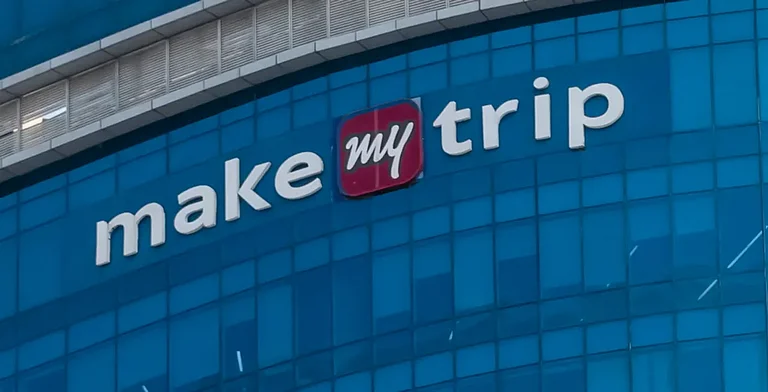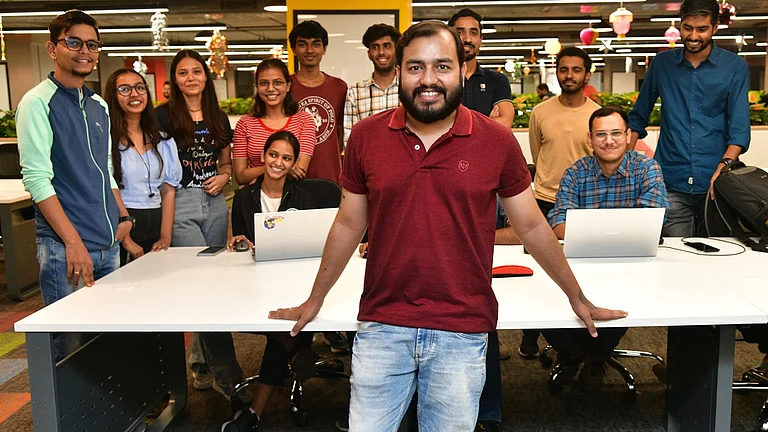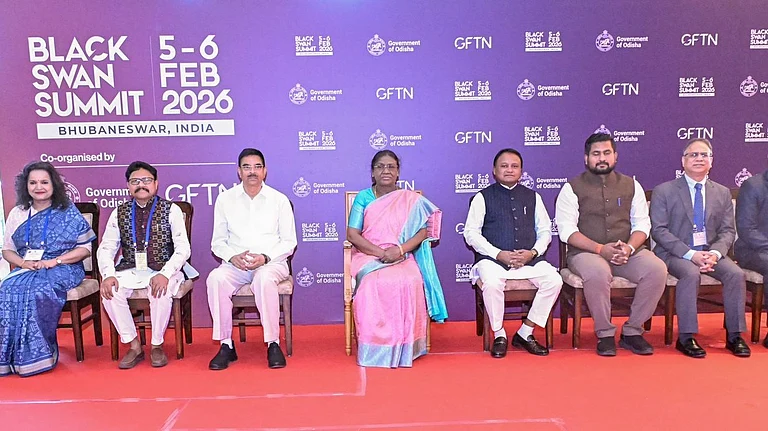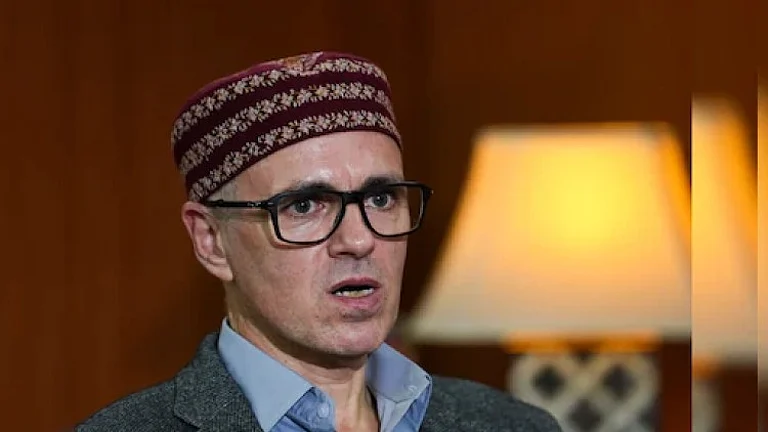Chicago/June 14, 2017
Richard Thaler has spent much of his life studying and teaching things that were obvious to a grandmother but not to an economist – and that’s not a joke. The penchant for questioning established thinking struck him after he read a summary paper published by Daniel Kahneman and Amos Tversky titled, Judgment Under Uncertainty: Heuristics and Biases as a PhD student at the University of Rochester. That paper had his “heart pounding the way it might during the final minutes of a close game” confesses Thaler, who went on to do some great work with the duo thereafter. As Thaler makes us realise how obvious and easy the answers to most of the questions we pose to him are, he recalls his fondest memories working with Kahneman and Tversky. His camaraderie with Kahneman is perhaps to do with the fact that the two look at life from opposite ends: Thaler is a self-proclaimed eternal optimist, while Kahneman is a proud pessimist. “Danny claims that if you are a pessimist, life never disappoints you. But I say, he has the worst of all worlds. Every day he thinks that the world is going to end. It doesn’t end, so he should be happy but he has a new thing to worry about. So he is never happy. I am an optimist, but he thinks I’m a fool,” he concludes with a childish grin.
What are the most applied traditional economic theories that are in contradiction with human behaviour?
All of them! Take a standard model like the life-cycle hypothesis of saving — it assumes that people compute their lifetime wealth (W). Then they spread it out over their lifetime. One assumption that is never written down in any model is that the money in that W is fungible. It does not have any labels hence, no mental accounting — which is false. Because as people started living with money, they developed certain rules of thumb, like budgeting, which are violations of fungibility, and they stick.
There is a new paper by a former colleague of mine, who studies people who get food assistance in the US. Known as the Supplemental Nutrition Assistance Program, the idea is that poor people are given money once a month that can be spent only on food. Suppose you have a family, who spends $200 a month on food and they get $100 in food assistance; the economic theory says their income has gone up by $100. Let’s say they spend 10% of their income on food. They should spend an extra $10 on food. In fact, they spend $15. And that’s because, they think of it as food money.
We see this everywhere. In the US, if people own a house and decide to retire and move to Florida, they buy a house that costs about the same as the house they sold. Why? Because that is house money. You would think they could have a smaller house and more money to spend on other things. The same is true for expected utility theory where it maximises preferential utility of W. What’s that W? People have different attitudes to risk depending on the context. In some sense, the issue with economics is that it leaves out context. In Misbehaving, I introduce a concept called ‘Supposedly Irrelevant Factor’. Much of life consists of these factors. It is hard to think that behavioural finance is such a big success — finance is the place people thought it was least likely because you have smart money. If we can find anomalies in the New York Stock Exchange, where won’t we find them?
Organisations are a collection of individuals. Is organisational behaviour any different from individual behaviour or are the characteristics of an organisation patterned in the same way as individual behaviour?
Organisations take on a life of their own, and there are organisational cultures. For instance, Chicago Booth School of Business is known to have a very intense and intellectual environment. When faculty from other universities come to give a talk here, they keep worrying for weeks because they know it is going to be a trial by fire. It is not that anybody is mean — people are by and large polite. There are many places where if you go and give a talk, the norm is that the speaker talks for one hour uninterrupted, and then there are questions. When a psychologist comes here and is used to that norm, the idea of getting a question on the title slide is shocking.
One norm that might seem surprising about Chicago Booth is that people show up at the office. Why is it surprising? If you’re in research, you can do as well from home as you can at work. It is important to maintain the culture of people coming in. Why will I come in? To talk to other people. If the other people aren’t here, then why should I come in? There are two equilibria: one is that people come in most of the time and the other is that nobody comes in, except to teach. There are business schools that have gone the second way. It unravels — once people stop coming in, they just stop.
When we were constructing this fancy new building 15 years ago, I said the most important thing, is underground parking. Because, in winter, if you have to walk four blocks when the temperature is -20°C and it’s windy and snowing, you are going to say “Oh! I better work from home.” That’s why we have basement-level parking here.
What are some of the key behavioural patterns that affect decision-making of managers? If you could categorise, what are the sources of imprudent decision-making?
The biggest one is overconfidence. There was a survey done of people starting new businesses. They were asked what they thought was their chance of success. The median was 90% and one-third said 100%. Now, we know that the truth is more like 40-50%. Daniel Kahneman used to say, “The way to become a General in the Israeli army was to be overconfident and lucky”. You do two stupid things that work out and you are a hero. In the US, the way to become a CEO is to be overconfident, tall and good-looking. That is why I ended up as an academic!
Overconfidence is extremely costly. Overconfident CEOs pay too much for acquisitions, are more likely to acquire or start ventures that do not make any sense. One of the lessons I try to teach is that in every organisation, everybody has a responsibility to tell the CEO if he or she is about to make a mistake. And in many organisations, that is not the case. For example, it is not the case in the US White House right now. President Obama insisted on an environment where a lot of people were able to express different opinions. Eventually, he would make a decision, but he was informed of various other opinions.

Besides overconfidence, which are the other factors?
Loss aversion can be something that prevents risk-taking because people are afraid of losing. It is important for firms to take calculated risks. I was teaching a group of executives from a publishing company. Each of them ran a particular publication, like a magazine or a newspaper. The CEO was there too. I said, “Suppose, there is an investment, wherein there is a 50% chance it returns $2 million and 50% chance you lose $1 million. Would you make this investment?”. Three guys out of 22 said yes. Then, I asked the CEO, “What would you like?”. He said, “I would like everybody to do (the investment)”. I told him, “You have a problem. You have created an organisation where people are afraid to take risks.” Then, I asked one of them why they wouldn’t do it. And he said that if it worked he might get a pat on the back, maybe a small bonus; but if it didn’t work, he could get fired. That is not a good gamble.
One other thing that goes with overconfidence is hindsight bias. It is an idea that you always know what is going to happen and this contributes to overconfidence because people do not remember how often they have been wrong. They remember thinking all along; Of course, there was a chance that Trump would get elected. Well, nobody thought so. But in a year, everybody will! Just like they never thought eight years ago, that an African-American would get elected president, before a woman. No one thought that, but people remember thinking it. That is one reason why we are overconfident.
I tell people to ask every team member, including the leader, to write down their views before a decision. That way you’ll avoid situations where people come back after things have gone wrong, saying they knew it wouldn’t work out.
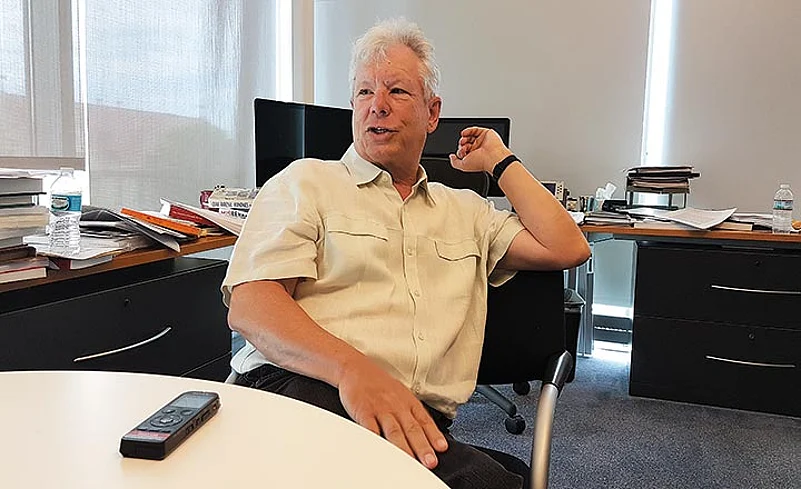
Are there any other safeguards that could become a part of organisational culture to insulate one from these psychological fallacies?
The most important thing is keeping track of decisions. That’s the way to cure overconfidence. I have a former student, with whom I did this research on the National Football League. We worked with a couple of teams, and as we wandered across the offices of one of the teams, we came across a room full of filing cabinets of Scouting Reports. No one had ever analysed these. So we pleaded with them to do it, and they finally agreed to spend a few thousand dollars to have someone enter the data. Then we asked the top people in the organisation: Do you know who the good scouts are? We got them to write down who’s the best scout according to them. They all had very strong opinions. Then, we crunched the data. There was only one scout who was any good, and nobody picked that guy! So, keep track. That’s the biggest lesson and it cures all kinds of ills.
Why don’t these things get implemented? What prevents it?
Keeping track is a pain. Plus, people are a little afraid of what they’re going to find. We like fooling ourselves.
How does one structure a good incentive plan for a company? What kind of biases and behavioural aspects should one keep in mind?
There is a famous paper on organisational behaviour called On the folly of rewarding A, while hoping for B. You don’t need to read the paper, the title says it all and that’s the first thing. More substantively, I’m cautious about purely quantitative incentive schemes because whatever you reward, you’ll get. And you can’t measure everything; suppose that the school wants to create an incentive plan for a professor. What do we do? We do teaching and research. How do we measure teaching? Students give evaluations so if you want a higher evaluation, you be nicer to the students. Did the school want me to be nicer to the students? So here at Chicago Booth we enforced a grade curve: your grade average can’t be greater than B+. You can’t give everybody an A. That’s one check. Another thing that we do. I don’t think any other business school does it — we have students report how many hours a week they work. That’s another way to be popular with students — not giving them any work.
Then, for research, some places will count publications. I could have 50 publications a year, if you want to count. Especially now, there are places that will publish if you pay them. But they don’t want that. Then there are all kinds of other activities. So we can start by making a list of all the activities that go into being a good faculty member, but they also change over time. You don’t want a new assistant professor doing the same set of things as somebody my age. So, yes, you can have some things that are quantified but everything else, you have to use your discretion.
You say taking away discounts is better than raising prices. Can you explain this whole concept of perceived fairness and how it works?
That’s just loss aversion. Removing a gain is not as aversive as imposing a loss. There are these norms of fairness and it is what you get used to. In the US, the norm is to leave a tip. In much of Europe, however, the tip is included in the bill and you leave a little change. Some restaurants have tried to make the tip mandatory and some people get mad. A more recent example is Uber surge pricing, which has made lots of people mad. I think, unnecessarily. Having surge pricing of greater than three is just stupid because it almost never happens, and when it does it creates all kinds of adverse publicity. So why do it? Now, of course Uber has changed a bit. It has made surge much less salient. It just quotes a price — say $13, and adds prices that are higher than usual, instead of saying 1.3x. Again, in some places Uber is starting to add tips. People have always been tipping cab drivers. Uber just started with no tipping, so some people are unhappy that there’s tipping. People will get used to it eventually. But changing what people are used to, especially charging more for something that used to be free, makes people angry.
What about these fairness principles should one keep in mind when a company thinks about building unflinching trust among customers, shareholders and vendors? Is there a way to evaluate one’s decision on this fairness parameter?
Ask your grandmother! Trust is enormously valuable. I talk about this in class: before the class starts, we have them do a little survey where they make all the mistakes that everybody else makes. Except, we ask them fairness questions and they answer differently. Raising the price of a snow shovel after a blizzard — people think it is unfair, but my students think it is fine. When we get to class, I say it is dangerous because after two years in business school, you have lost your sense of what people think is fair.
There is a famous story that Coca-Cola had a vending machine that would raise the price of Coke on hot days. The CEO mentioned this in a speech in Brazil and people got really mad. Eventually, he got fired. I tell my students that story and how not being sensitive could get you fired. The founder-CEO of Uber also went through this. He was insensitive in many dimensions. He was obviously a brilliant guy, but he needed to read some of my books!
How can companies build trust?
One way you build trust is by trusting. There is a story I like to tell. I experienced this in Thailand. My intrepid wife and I were in Chiang Mai and all cab rides were negotiated. For a 20-minute ride, we negotiated a price that was probably $2. When we get to the restaurant, the cab driver asks, ‘Would you like me to come back for you?’ That was a sign that I probably overpaid. When I asked him the fare, he said, same fare. From an economist’s perspective, I meant what contract can we sign? Suppose he asks me to pay him for the return, how do I know he’ll show up? He cleverly suggested, “Don’t pay me anything now. I’ll be here later.”
So what was he doing? He was saying, “I trust you, so you should trust me”. He was there when we finished dinner. Then, on the way home, we asked him to stop at the night-market. He took us there, and we agreed on a place to meet him. We still hadn’t paid him anything. But we walked 20 minutes to go back to meet him at the designated spot because we owed him money. Moral of the story: If you treat people well, then they will reciprocate, most of the time.
Do the hot and cold emotions apply to companies as well? How can you overcome this?
For sure, and a great example of hot is Barbarians At The Gate. They had some reservation price, and then they went soaring past it. You must read the book Into Thin Air, which is about climbing Mount Everest, it reads like a thriller! In that book, most of the people who died, violated a rule: if you haven’t reached the summit by one in the afternoon, turn around. In class we talk about how to fix that. One of the solutions is having somebody who isn’t there, who can’t see the summit, make the decisions, like maybe the climber’s spouse. There are other suggestions like, don’t make the turnaround time just there, work it out backward. If you have to be at the summit at 1 p.m. then you have to be at point X by 11 p.m. and point Y by 9 a.m. They start climbing at midnight. I knew somebody who was attempting to be the oldest person to summit. He was over 70-years-old. He turned around about 2 a.m. because he realised that he was falling behind and he wasn’t going to get faster.
I bring up Barbarians At The Gate because one of my suggestions, if a team like that is going to be making hot decisions, is that there should be somebody at headquarters getting eight hours of sleep every night, and will not be emotionally involved, who has to approve bids above the reservation price.
Is there a way to think about sunk cost to better your outcome?
Everybody has difficulty with sunk cost. It is very difficult to learn, because you’ve paid a lot of money and you do not want to waste it. But spending more money on it is not going to get that old money back. The lesson is: the money you paid is gone and irretrievably so. If you bought the wrong camera, then buying another lens isn’t going to fix it! Period.
One of the things imperative for growth is continuous learning. You say that unless there is frequent practice and an immediate feedback mechanism, you can’t learn. That’s why the big decisions that individuals take often can’t be learnt. If you don’t learn, how do you avoid mistakes?
Yes, you can’t learn unless you get practice and feedback. We all manage to drive moderately well because we do it every day. Although, you could never get me to drive in India! So trial and error works. Like I say in the book, the biggest decisions that we make such as getting married or buying a house, we don’t do them often enough to get it right. That’s why you have to learn from the experience of others.
How can companies create a culture of learning? When it comes to big decisions, even for companies — whether it’s making a large acquisition or making a very significant capital allocation call — those decisions are few and far between.
You’re right that rare decisions are hard but you can locate them outside. No firm will do enough acquisitions to learn but there are lot of papers written about other companies’ acquisitions. And what do we know? That most of the acquiring firms don’t make any money. You want your firm to be acquired!
Which departments do you think are less optimally run?
The human resource department in most big companies is the weakest part of the firm. The so-called money-ball revolution in sports has not reached most human resource departments. I think it’s the domain where I see the greatest potential for improvement. How do we hire? We still hire people mostly through job interviews that are completely useless, especially traditional ones where I sit and ask you questions like, “Where do you see yourself in five years?” or “What are your weaknesses?”. How can you replace it? Use objective data, instead. And interviews should largely be replaced with a test of what people are actually going to do.
At Fuller & Thaler, while hiring a portfolio manager, we give them an academic paper to read and tell them that we would be talking about it in the interview. Then we’ll ask them if there’s something in the paper that they can use, how they’ll use it or if there are any flaws in it. The job talk for a professor, again, is a test and much of the test is, do you understand your own research? Because many times, if it’s a new PhD, the question is, was it the advisor’s work or the student’s? One of the things we’re trying to find is if people realise the weaknesses in their research. Can they think of alternative explanations? Of course, to some extent, we try to see if they fit in, but personally, I play that down because, we’re going to help shape the people who come. They’ll see the social norms, culture, but we also want diversity in every sense. The thing I absolutely do not want to do is hire a bunch of guys like me, because we want each person that we hire to add something new. Of course, not everything works out. But I think organisations that hire people who are the same — all of whom went to the same school and belonged to the same club — are a recipe for disaster because those people will all think the same.
What kind of behavioural biases have you personally been able to overcome and what do you still struggle with?
One thing I learned early on was that the way to overcome procrastination was to make commitments. If I was working on a paper, I would agree to present it in six months, and then you need to have something to say. You can’t say, “I had an interesting project idea that I didn’t do.” The other thing I learned was to choose good collaborators who have skills different from mine. Most of my papers have been co-authored and I was lucky to spend all the time with Daniel Kahneman and Amos Tversky.
Any favourite memories of you working with them?
The first year that I visited them in Stanford, I was 32. I hadn’t published a behavioural paper yet. Danny was visiting the Centre for Advanced Studies and Behavioural Sciences at Stanford. I had an office there and I would often run into them. They were working on the final draft of the Prospect Theory, which was the paper that would eventually win Danny and Amos the Nobel Prize. Together they would sit and argue about each word. I had a similar experience with Amos.
We were working on a paper in the last year of his life. I was visiting MIT and he was in Boston. It turned out that he could spend the weekend in Boston. He was a big basketball fan, and this was a weekend, which had a lot of basketball games. So, we decided that we would watch the end of each game and then go back to work. He was never very good at typing. Thus, I was the typist, working on my laptop. We would work for an hour or so and had one page done by the end of it! Then we’d watch the end of a game, and go back by reading aloud the page we had written, fixing it, then we’d write another page, and then watch the end of another game! We did that for a weekend and we had eight pages! And each time, we started at the beginning! He had infinite patience. Losing Amos was a terrible loss for society and obviously for us friends and family.
Could you share some Daniel Kahneman anecdotes?
He has this famous story about a book project that he was working on back in Israel. It was a book on decision-making for teenagers. At some point, there was a big team working on it, and he decided to ask, how long they thought it would take. They said two-three years. There was a guy on the team who was aware of many such projects and he asked him, “You’re experienced. How long does it take for a group like this to finish?”. The guy said, “Probably half will never finish”. So the mean is undefined! And then, he said, “I can’t think of a team that finished in less than seven years.” This is one of Danny’s favourite stories and he writes about it in Thinking Fast and Slow. Let’s just say that book took even longer!









